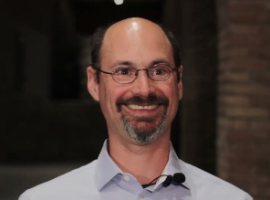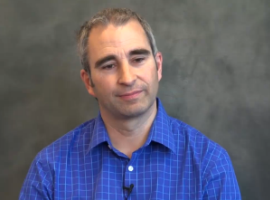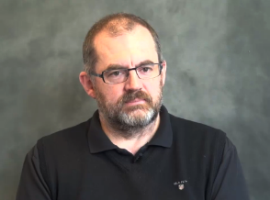InfoQ Homepage Infrastructure Content on InfoQ
-
Tom Limoncelli on DevOps and Automation
Tom Limoncelli explains the reasons for DevOps, how to choose which steps to automate and which not, enabling continuous deployment, and much more.

-
Takipi's Tal Weiss Talks Candidly About Enterprise Debugging Practices
In his role as co-founder and CEO of Takipi enterprise debugging, Tal Weiss advises enterprises on how to plan and execute production debugging strategies. In this candid interview, Weiss spoke to InfoQ about best (and worst) tools and practices.

-
Mary and Tom Poppendieck on the Role of Architects, DevOps, and Diversity in IT
Mary and Tom Poppendieck talk to Charles Humble about continuous delivery, architects, management and other senior roles in IT, and diversity in the industry.

-
Trisha Gee on the Java Eco-System
What's the impact of Java 8 on the Java ecosystem and why did we have to wait so long for these improvements? Is the JCP the right tool for driving innovation and do we need a really new version of Java? One that would not need take care of backward compatibility? We met Trisha Gee - a great member of our Java community - in New York to talk about these topics.

-
Randy Shoup on Microservices, the Reality of Conway's Law, and Evolutionary Architecture
Randy Shoup talks about designing and building microservices based on his experience of working at large companies, such as Google and eBay. Topics covered include the real impact of Conway's law, how to decide when to move to a microservice-based architecture, organizing team structure around microservices, and where to focus on the standardization of technology and process.

-
Anil Madhavapeddy on Unikernels and OCaml
Anil Madhavapeddy describes why unikernels have important security properties, how they can be built, and how they can be utilised alongside of Docker containers. He stresses the importance of type safe languages, particularly OCaml, which was used for the Mirage OS project, but also touches upon Go and Rust.

-
Colin Garlick on Architecture Design in an Agile World
Architecture design is defining the basic structure of our software for now and for the future. But how can this work, given that we are living in an agile world accepting the fact that we only have limited knowledge of our final system? InfoQ was talking with Colin Garlick about architecture design and responsibilities during software development.

-
Stephen Thair on Enterprise DevOps and Cultural Change
Steve Thair on introducing DevOps in large organizations, the particular challenges they face (from ROI based finance models to technical debt to improving communication) and how to address them.

-
Interview with Jay Jay Billings on the Eclipse Science Working Group
Recorded at EclipseCon NA 2015, Jay Jay Billings talks to Alex Blewitt about the recently created Eclipse Science working group, including the challenges involved in data visualisation of petabytes of data and on highly parallel computing that might have hundreds of thousands of processes all processing data.

-
Neha Narula on the Latest Research in Databases, Transactions, Distributed Programming
Neha Narula talks about the latest research and concepts in distributed programming and databases, reducing the overhead of transactions, are multicore systems like distributed systems, and much more.

-
Mitchell Hashimoto on Consul, Terraform, Atlas, Go as a Language for Tools
Mitchell Hashimoto explains how Vagrant, Consul, Terraform and Atlas help developers and ops to set up complex systems and keep them running. Also: Go as a language for tools.

-
Camille Fournier on Consensus Systems: ZooKeeper, Etcd, Consul
Camille Fournier explains consensus systems ZooKeeper, etcd, and Consul: how they work, what they do, how they differ from each other. Also: must-read papers in distributed programming.
